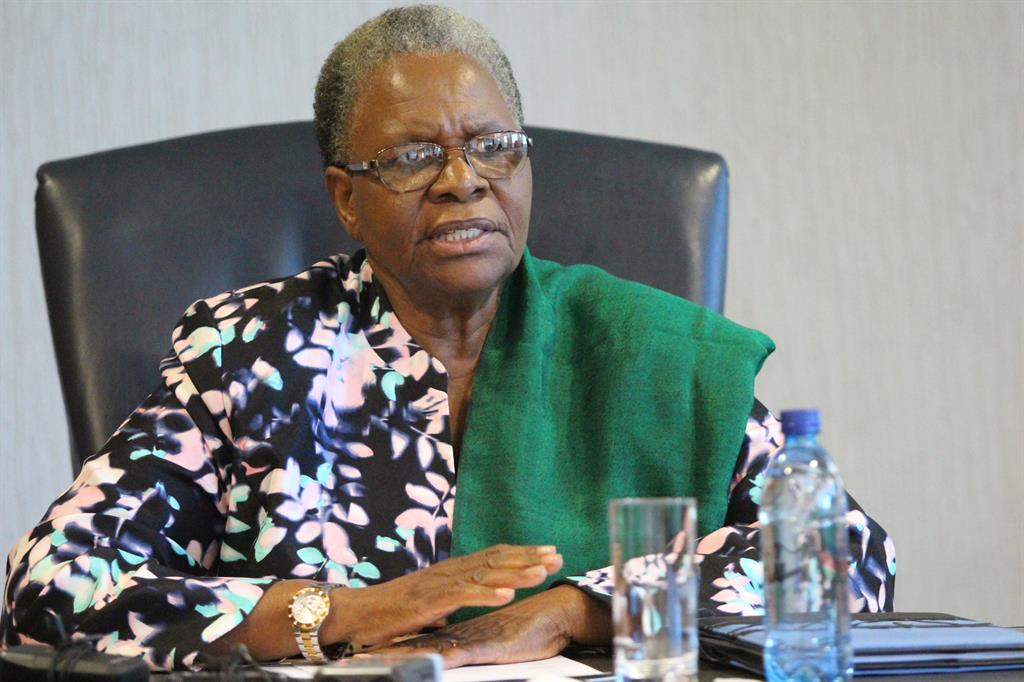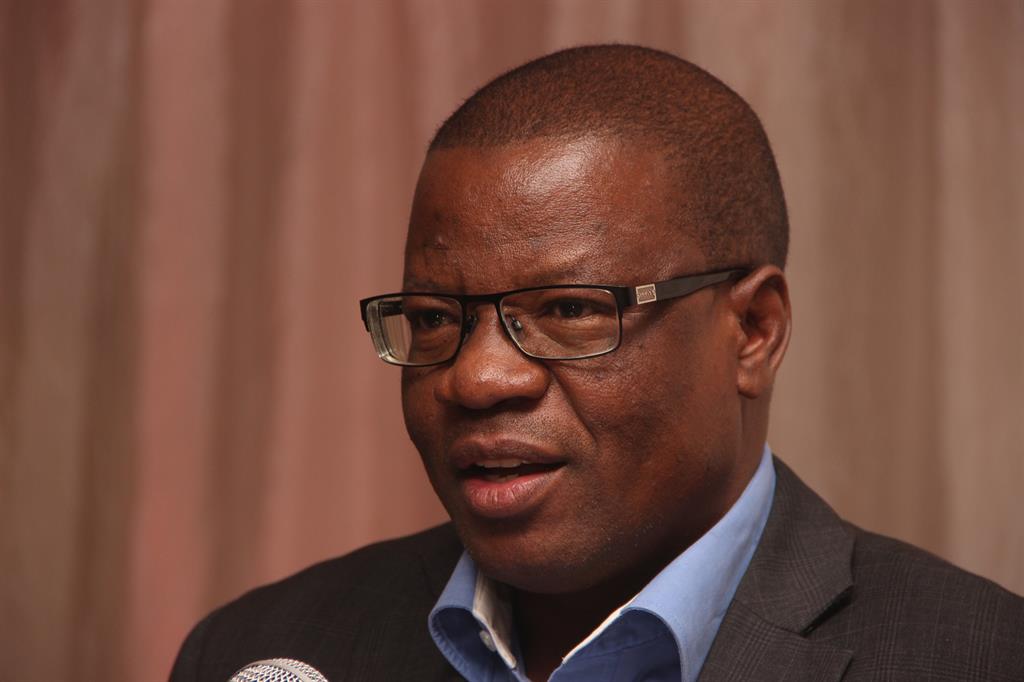US intel confirms Shanghala, Esau ‘corruption’
There are suspicions that the move by the US to blacklist the two is aimed at curtailing alleged sinister plans to aid the accused persons in their quest for freedom.
MATHIAS HAUFIKU
WINDHOEK
The United States of America government says it has obtained credible information to conclude that Bernhardt Esau and Sakeus Shanghala were involved in "significant corruption" during their time as Cabinet ministers.
This comes after Namibian Sun asked the US embassy in Namibia why only Esau and Shanghala – amongst all the Fishrot accused – were blacklisted, despite not being found guilty by the courts.
The ban is also extended to Esau’s wife Swamma and son Phillipus.
The embassy’s spokesperson Walter Parrs on Friday said “the designations send a strong signal the United States stands with all Namibians in support of democracy, the rule of law, and anti-corruption”.
“The decision to announce the designations was made now because the Secretary of State has obtained credible information regarding Esau and Shanghala’s involvement in significant corruption while serving in official capacities for the government of Namibia.
Credible information is gathered from a variety of sources. Of note, numerous media outlets have reported extensively on the two individuals’ corrupt activities,” Parrs said.
He added that the US government is committed to helping Namibia realise its full economic and democratic potential by tackling corruption.
Unlike Esau, Shanghala has past US ties tracing back to the years that his father, Bishop Josephat Shanghala, spent years there for theology training.
He lived in the US for just over two years in the 1980s when his parents were there for studies.
Sinister plans
Namibia’s deputy Prime Minister Netumbo Nandi-Ndaitwah, who also serves as the country’s international relations minister, yesterday said there were no consultations between the two governments before the decision to blacklist Shanghala and Esau was made.
“As you know they [Shanghala and Esau] are no longer in the government service, so there was no ground for consultations. Of course they are citizens of Namibia, but the USA has their own laws,” she said.
Apart from the duo, no other Namibian officials or their immediate family members are currently banned from entry into the United States under Section 7031(c) of the Department of State, Foreign Operations, and Related Programs Appropriations Act of Congress.
The section provides that officials of foreign governments and their immediate family members are ineligible for entry into the United States when the Secretary of State has credible information that the foreign official has been involved, directly or indirectly, with significant corruption and/or a gross violation of human rights.
There are suspicions that the move by the US to blacklist the two is aimed at curtailing alleged sinister plans to aid the accused persons in their quest for freedom.
An official source who spoke to this publication said "it seems the Americans know something we don't, and at this stage, one suspects they probably suspect that there are plans to help the guys get out of jail".
‘Perception as strong as conviction’
Public policy expert Dr Marius Kudumo said the move by the US government has nothing to do with the legal process currently underway.
“Political issues are not legal issues. In Namibia, we always wait for legal processes to be finalised, but in this case, the two [Shanghala and Esau] are political office-bearers. We all know that a perception is as strong as a conviction, hence it needs to be managed,” he said yesterday during a telephonic interview with this publication.
Kudumo, who is the director of international relations at Namibia University of Science and Technology (NUST), said the societal standing of the two former ministers also played a role in the decision, and added that the “US surely thinks there is a strong case”.
“Although they have not been found guilty, on basis of perception you need to manage the process, especially the ethical part thereof. Of course, in terms of the legal process it is not fair, but the ethical consideration of public office-bearers is important because of the potential damage perceptions can cause,” he said.
“That is why you see in the developed world, if a public official is accused of wrongdoing, they resign or are fired even if the legal proceedings have not been concluded.”
WINDHOEK
The United States of America government says it has obtained credible information to conclude that Bernhardt Esau and Sakeus Shanghala were involved in "significant corruption" during their time as Cabinet ministers.
This comes after Namibian Sun asked the US embassy in Namibia why only Esau and Shanghala – amongst all the Fishrot accused – were blacklisted, despite not being found guilty by the courts.
The ban is also extended to Esau’s wife Swamma and son Phillipus.
The embassy’s spokesperson Walter Parrs on Friday said “the designations send a strong signal the United States stands with all Namibians in support of democracy, the rule of law, and anti-corruption”.
“The decision to announce the designations was made now because the Secretary of State has obtained credible information regarding Esau and Shanghala’s involvement in significant corruption while serving in official capacities for the government of Namibia.
Credible information is gathered from a variety of sources. Of note, numerous media outlets have reported extensively on the two individuals’ corrupt activities,” Parrs said.
He added that the US government is committed to helping Namibia realise its full economic and democratic potential by tackling corruption.
Unlike Esau, Shanghala has past US ties tracing back to the years that his father, Bishop Josephat Shanghala, spent years there for theology training.
He lived in the US for just over two years in the 1980s when his parents were there for studies.
Sinister plans
Namibia’s deputy Prime Minister Netumbo Nandi-Ndaitwah, who also serves as the country’s international relations minister, yesterday said there were no consultations between the two governments before the decision to blacklist Shanghala and Esau was made.
“As you know they [Shanghala and Esau] are no longer in the government service, so there was no ground for consultations. Of course they are citizens of Namibia, but the USA has their own laws,” she said.
Apart from the duo, no other Namibian officials or their immediate family members are currently banned from entry into the United States under Section 7031(c) of the Department of State, Foreign Operations, and Related Programs Appropriations Act of Congress.
The section provides that officials of foreign governments and their immediate family members are ineligible for entry into the United States when the Secretary of State has credible information that the foreign official has been involved, directly or indirectly, with significant corruption and/or a gross violation of human rights.
There are suspicions that the move by the US to blacklist the two is aimed at curtailing alleged sinister plans to aid the accused persons in their quest for freedom.
An official source who spoke to this publication said "it seems the Americans know something we don't, and at this stage, one suspects they probably suspect that there are plans to help the guys get out of jail".
‘Perception as strong as conviction’
Public policy expert Dr Marius Kudumo said the move by the US government has nothing to do with the legal process currently underway.
“Political issues are not legal issues. In Namibia, we always wait for legal processes to be finalised, but in this case, the two [Shanghala and Esau] are political office-bearers. We all know that a perception is as strong as a conviction, hence it needs to be managed,” he said yesterday during a telephonic interview with this publication.
Kudumo, who is the director of international relations at Namibia University of Science and Technology (NUST), said the societal standing of the two former ministers also played a role in the decision, and added that the “US surely thinks there is a strong case”.
“Although they have not been found guilty, on basis of perception you need to manage the process, especially the ethical part thereof. Of course, in terms of the legal process it is not fair, but the ethical consideration of public office-bearers is important because of the potential damage perceptions can cause,” he said.
“That is why you see in the developed world, if a public official is accused of wrongdoing, they resign or are fired even if the legal proceedings have not been concluded.”







Comments
Namibian Sun
No comments have been left on this article